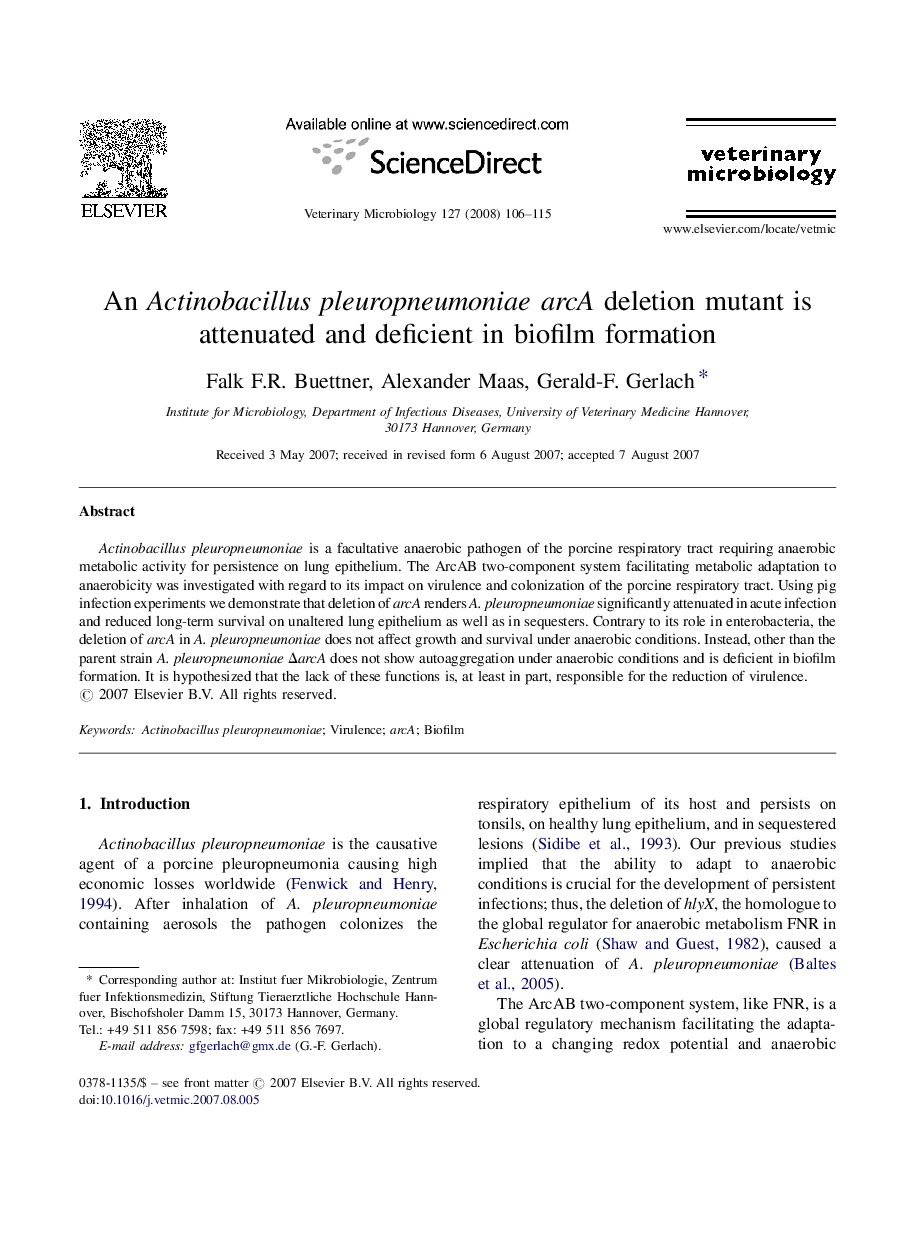| Article ID | Journal | Published Year | Pages | File Type |
|---|---|---|---|---|
| 2468898 | Veterinary Microbiology | 2008 | 10 Pages |
Actinobacillus pleuropneumoniae is a facultative anaerobic pathogen of the porcine respiratory tract requiring anaerobic metabolic activity for persistence on lung epithelium. The ArcAB two-component system facilitating metabolic adaptation to anaerobicity was investigated with regard to its impact on virulence and colonization of the porcine respiratory tract. Using pig infection experiments we demonstrate that deletion of arcA renders A. pleuropneumoniae significantly attenuated in acute infection and reduced long-term survival on unaltered lung epithelium as well as in sequesters. Contrary to its role in enterobacteria, the deletion of arcA in A. pleuropneumoniae does not affect growth and survival under anaerobic conditions. Instead, other than the parent strain A. pleuropneumoniae ΔarcA does not show autoaggregation under anaerobic conditions and is deficient in biofilm formation. It is hypothesized that the lack of these functions is, at least in part, responsible for the reduction of virulence.
